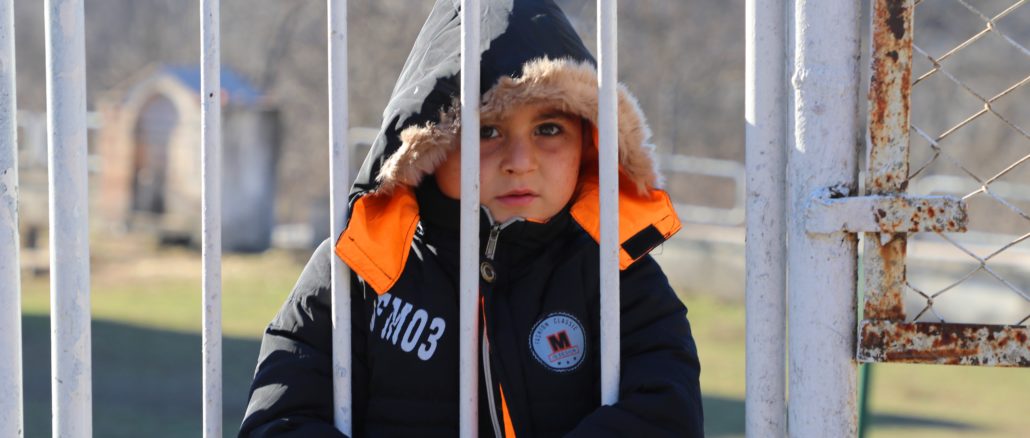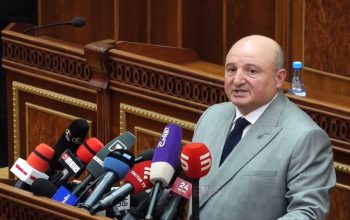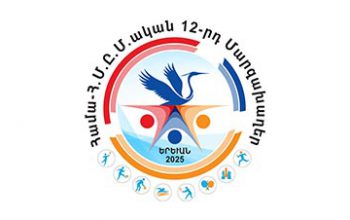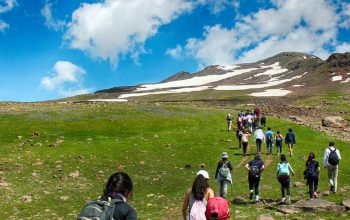By Vahagn Khachatrian
Life continues in its natural way, whereas Artsakh is still under a total blockade. It’s been two years since the war came to an end in Artsakh, but only to an illusive end. In reality, the war didn’t end. Its ghost wanders along the streets of towns and villages, smirking at the empty shelves of stores. It enters the homes belonging to loving and warm families of Artsakh like an uninvited guest, sits at our tables, brings a cold wind and spreads out like a mournful veil on calm, peaceful evenings. It disrupts the lives of the elderly and adds sadness to the vibrant and colorful palettes of our children.

I am Vahagn. I am an Armenian. I was born and raised in Artsakh, and I am still living here. My roots are deeply penetrated in a land which was established by the blood and sweat of our soldiers, fathers and brothers. Our dreams are all about this land. But my homeland is wounded today. The injuries of the 44-day war are consoled in no way; they deepen more day by day and make my country bleed with the last drop of blood. Today, my country is like a wounded eagle locked in a cage, whom no one helps to fly freely.

In our country, we feel happy and mighty. We can survive all difficulties, because living in and for our homeland is a heavenly gift. Those who do not have a homeland and cannot understand its significance are not as fortunate.

Maybe it sounds weird to people living in the 21st century that I, like thousands of my compatriots, do not wish to live in the United States, France or Italy, to enjoy the magnificence of Venice or the Eiffel Tower. We had been dreaming about that until we were faced with destiny’s unlucky surprise. And maybe our dreams wouldn’t have changed their addresses and contents. The ghost of the war pursues us as well, ruins our dreams and grasps from us the ability to fulfill them. Today, everyone in Artsakh has one dream—to live in peace.

The 44-day war in 2020 took away our loved ones and our friends from us. We lost 75 percent of our motherland, but we did not lose the desire to live in the rest of the 25 percent. Keeping it Armenian became our only goal. God’s creation of man is strange. He can create and ruin everything at the same time. Artsakh and its neighbors represent two completely opposite sides of life. We are alien to the nature of destructors and genociders. Everyone in the world has the right to live in freedom. If only it were possible…

Today, my rights and the rights of my compatriots are being ignored. We are under a blockade by our enemies. Basic necessities are running low. Patients young and old in intensive care units are deprived of the right to receive treatment outside of Artsakh. One death has already been reported. Human rights are disregarded before the civilized world, in the 21st century, but total silence is continuing. A group of perpetrators named themselves ecologists and think they can decide the future of 120,000 people living in Artsakh. The idea that a person is of supreme value has lost its meaning.  The Artsakh blockade has led to a food shortage at grocery stores (Photo: Weekly contributor Vahagn Khachatrian)
The Artsakh blockade has led to a food shortage at grocery stores (Photo: Weekly contributor Vahagn Khachatrian)
During the war in 2020, Azerbaijan with the help of Turkey and its supporting countries killed our boys and displaced thousands of people. Up to this moment, they continue their criminal acts aimed at completing their genocidal plan to eliminate the Armenians of Artsakh. The world is still silent.

Thousands of children in Artsakh are waiting for a holiday miracle…for the road to Armenia to open, as many of them have been separated from their families. I don’t want the war and this disaster to happen again. I don’t want our children to look for their fathers in the sky.

I want everyone to live and to live in their homeland. I want all the roads to lead to our homes. I call on everyone around the world: do not pretend to recognize us, not to see us. Humanism is an important concept. Each of us must have a sense of humanity.

About Vahagn Khachatrian
Vahagn Khachatrian was born on October 2, 1999 in the Republic of Artsakh. He graduated with a degree in economics from Artsakh State University. Vahagn is a member of the ARF Artsakh Youth Organization Central Department and a leader in the ARF Artsakh Junior Organization. He is also a journalist for Aparaj newspaper.





